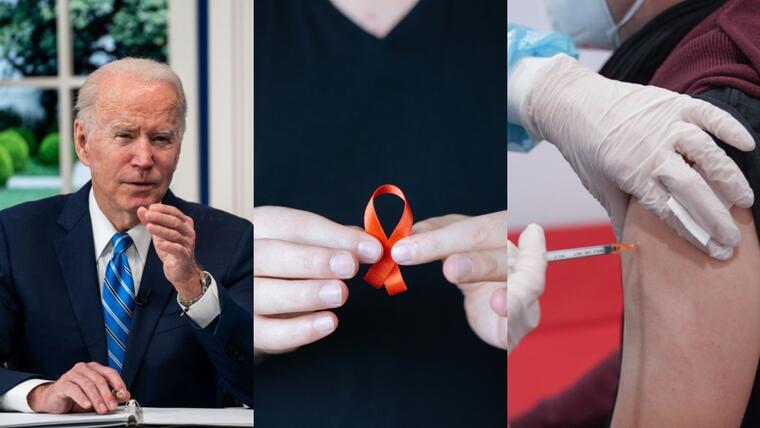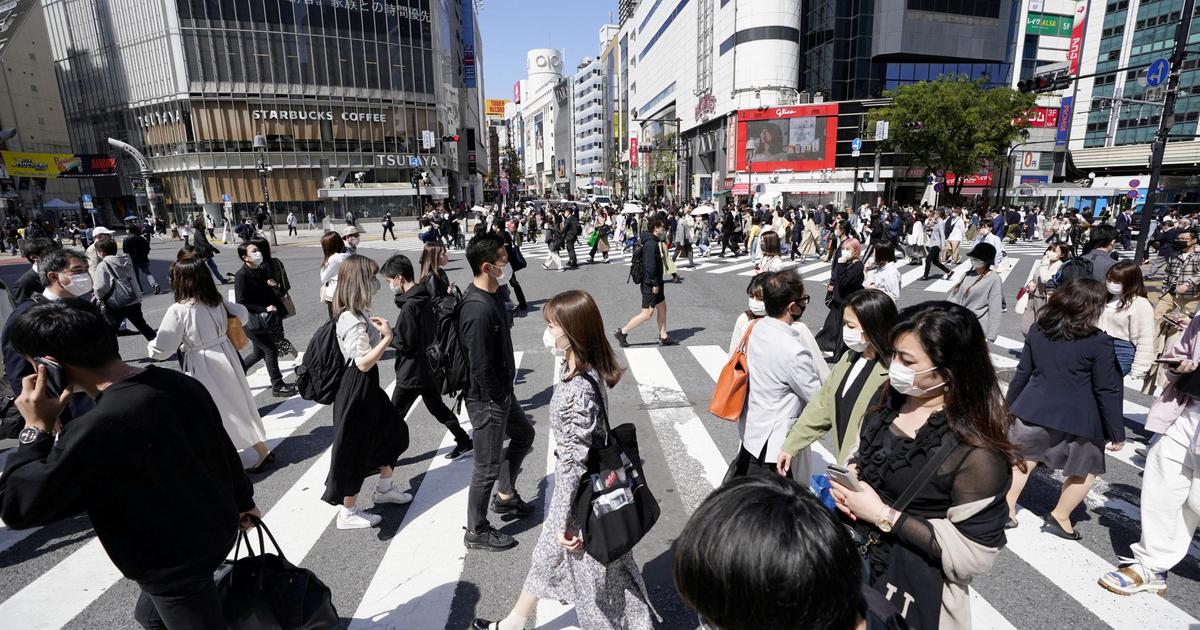The United States began the year 2022 with a new record for COVID-19 infections, thousands of flights canceled due to lack of staff due to the coronavirus, and hospitals working at capacity.
The increase in cases due to the new omicron variant poses a gloomy outlook for the coming weeks and casts doubt on a near or even possible end for the pandemic.
January may be the hardest month. Is there room for hope?
In the week that ended on Friday, with the end of the year, 2.7 million infections were registered, 105% more than the previous one, according to the USA Today newspaper based on data from Johns Hopkins University.
The United States thus suffered many more cases in the last days of the year than in the whole of November.
And the worst is yet to come, according to experts, who expect the peak of the wave to
be reached in mid-January
.
The United States will arrive on January 9 with an average of 2.5 million cases per week, and a maximum of up to 5.4 million, according to estimates by researchers at Columbia University of New York.
[CDC Raises Alert Level: Don't Cruise Even If You're Vaccinated]
A man is tested for COVID-19 at a walk-in testing center run by Nomi Health on Tuesday, Dec. 28, 2021, in downtown Miami.Rebecca Blackwell / AP
"
It's shocking, disturbing,
" Jeffrey Shaman, the epidemic expert who led the study, told The New York Times.
"We are seeing an unprecedented number of cases," he said.
In fact, these figures may even be lower than reality, specialists warn, due to the shortage of tests, the delays in the reporting of infections during the end of the year holidays, and that home tests are less accurate with the omicron variant .
In addition, a significant number of people may have asymptomatic infections and never know that they suffered from coronavirus.
The omicron boom, which led to the cancellation or reduction of the end of the year celebrations, has been altering the provision of services and transport for days.
More than 3,200 flights were canceled on New Year's Eve and another 3,000 on New Year's Day, according to flight-tracking website FlightAware.
January can thus bring a new crisis in economic activity.
"What worries me so much during the next month is that our economy is going to close, not because of the policies of the federal government or state governments, but because many of us are sick," said a professor of emergency medicine at the School. of Public Health from Brown University to CNN.
The year begins in this way with a sample of how more notable achievements against the coronavirus, such as vaccines, may be insufficient to stop the new variant, or others that emerge.
Predictions for 2022 regarding COVID-19 and migration, according to the seer Deseret Tavares
Dec. 31, 202102: 22
The number of hospitalizations is growing, mainly because of those who decide not to get vaccinated even if it poses a risk to their lives and those of others.
The omicron variant seems to cause milder symptoms (especially in those immunized), but the exponential increase in infections
is increasing the pressure on hospitals
.
“We don't have that much available capacity.
And, of course, omicron makes it worse, ”William Hanage, an epidemiologist at the Harvard TH Chan School of Public Health, told The New York Times.
The new wave also reinforces one of the greatest fears of the pandemic: the possibility that the United States, or the rest of the countries of the world, of course, cannot completely end the virus.
Will the coronavirus be like the seasonal flu?
“I think we are likely to see this wave come and go and that
spring and summer will look much better
than it does now,” explained Ofer Levy, director of the Precision Vaccine Program at Boston Children's Hospital in an interview with CNN.
In the coming months there will be fewer cases, Levy estimated, and "in autumn and winter we will see a new peak of viral diseases, coronavirus, influenza and others, but it will already be like an endemic cycle."
COVID-19 could thus become a seasonal problem, with a peak in cases in the fall and winter but without causing a deadly pandemic and collapsing hospitals, especially thanks to vaccines.
However, scientists caution that it is difficult to establish when it will happen because COVID-19 has demonstrated its ability to transform and surprise experts.
“There has been a shift in transmission patterns as variants have emerged, in what I call a parade of variants, and now we see much more extensive transmission and much more uniform spread globally.
This makes declaring the end of the pandemic more difficult
, "Arnold Monto, a professor of epidemiology at the University of Michigan, told CNN.
A nurse takes a break from her New Year's Eve shift at the COVID-19 ICU at French hospital La Timone in Marseille.Daniel Cole / AP
Monto and other public health experts anticipate that it is possible that, in the future, the spread of the coronavirus could be traced in a way similar to how it is done with the flu.
"We have no idea if we'll see that kind of seasonal pattern with SARS-CoV-2, but it reminds us that most other respiratory viruses start to behave like seasonal events," Monto said.
The key to a possible return to normality
The next phase that is expected in this way of the coronavirus is endemic: that it is a disease that has a constant presence in a population, but that does not affect an alarming number of people.
Officials at the World Health Organization (WHO) predicted that the coronavirus "may become another endemic virus in our communities," but
never disappear
.
Coexistence with a relatively under-controlled virus may bring some normalcy in the near future.
"We hope to get to such a low level that, even if it is not completely eliminated, it does not have a major impact on public health or the way we live our lives," said Anthony Fauci, chief medical adviser to the White House, in a Senate hearing in November.
“
If we get more people vaccinated around the world, and more people vaccinated now
, hopefully within a reasonable period of time we will get to that point where there may occasionally be ups and downs, but the virus will not dominate us like it does. now, ”he pointed out.
About 62% of the US population is fully vaccinated against COVID-19, according to official data, but many still resist it or wear a mask.
Thus, the transition to normality can take much longer, experts warn.
"We have to get somewhere well above 80%, possibly even well above 90% of the population with immunity, either from having had an infection or from having received the vaccine," pediatrician Philip Landrigan told CNN. and an epidemiologist from Boston College.









